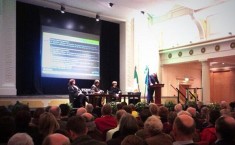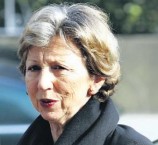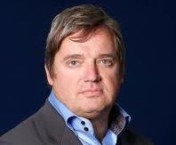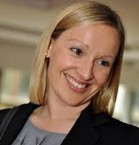
By Susan Gately - 26 January, 2014

Reform Alliance meeting at the RDS. Pic courtesy: Irish Independent.
Over a thousand people gathered for the first meeting of Reform Alliance, the political reform movement formed by the five dissident Fine Gael TDs and two senators, who voted against the Government’s abortion bill last year and resigned from the party.
Billed as the opening of a new “national conversation”, the gathering drew people from all over Ireland, including many young people.
In its inaugural meeting, Reform Alliance focused on political reform, (first session yesterday morning), health reform (second session in the morning) and economic reform (afternoon session), with an impressive array of speakers on each topic. Each speaker put forward a number of ‘reform’ suggestions.

Olivia O’Leary, Broadcaster and Commentator
Speaking about political reform, broadcaster and commentator, Olivia O’Leary, called for a greater involvement of women in politics, and the implementation of reports.
Too often important reports are left to “gather dust on the shelf of a government department”.
As an example, she cited the Fitzgerald report of 1968 on health reform, which set out how acute hospitals should be re-organised to better meet the needs of that era, which met such resistance that very little was done.
Had it been implemented, the health system would now be in better shape.
Philip Blond, an author and advisor to David Cameron, called for a decentralisation of power. “Break it up”, he said. He also recommended tenders for large government projects to be broken up too, to allow small and medium sized businesses the chance of getting the contract.
He said the senate should be expanded, and citizens should be given a right to recall politicians if they did not measure up in terms of their political promises.

Philip Blond
Dr Jane Suiter, a political scientist at Dublin City University, said the fundamental problem was allegiance “to the local, places and institutions, other than the state”.
“The problem with the system is that you are left with vested interests, individuals, families, trade unions etc. We should be thinking about public service as a privilege. It is not about advancing yourself, it should be about advancing all of us.”
To do this required legislating – new rules and institutions (like a reformed Seanad). “We need real transparency and real accountability but that sort of thinking has no purchase at the moment,” she said.
She called for a greater involvement of young people in politics and to that end, to roll out the Leaving Cert course on ‘Politics and Society’, which she said had been ready some time, but “which is not being implemented” because it might cost the country a “small amount of money”.
Economist, David McWilliams, told the gathering that there is no reason why the economy can not provide people with a decent standard of living, while former president of the University of Limerick Dr Ed Walsh said problems in the health service were not caused by a lack of resources. He said that a restructuring of the system was needed.
Co-founder of the Blackrock Clinic, Dr Jim Sheehan, proposed that the new national children’s hospital be built on a greenfield site in Blanchardstown, rather than the planned site at St James’ Hospital.
After each of the talks, time was given to the floor, with each speaker being allowed to make one or two concrete proposals in a two minute period.
Suggestions from the floor included: giving the vote to members of the first generation Irish diaspora; increasing the threshold for the self employed so that VAT does not become payable at €37,500; to pay Jobseekers allowance to the self employed if their business goes bust; introducing a quota for woman in the Dáil; the loosening of the three party whip; the formation of a new political party; a new electoral system.
A number of speakers made the point that they did not agree with the seven founders of Reform Alliance on the issue on which they had taken a stand, but absolutely supported their right to do so.
A speaker on the floor drew applause when he tacked the speakers on this view: “This is the whole point of Reform Alliance. The reason they resigned was because of the u-turn by Fine Gael [on abortion].”
The Reform Alliance meeting in the RDS was financed by the seven politicians who founded the movement: TDs Lucinda Creighton, Terence Flanagan, Peter Matthews, Denis Naughten and Billy Timmins, and Senators Paul Bradford and Fidelma Healy Eames.

Lucinda Creighton TD
“We put our hands in our own pockets,” Terence Flanagan TD told CatholicIreland.net and added, “It is worth it.”
Lucinda Creighton told CatholicIreland.net that she was delighted at the high turnout at the event, and that she hoped it would be followed with smaller regional meetings around the country.
She complimented the many volunteers who had helped with the organisation of the event.
Anne Marie Shanahan from Kerry, told CatholicIreland.net it was her first time at a political meeting. She was enthusiastic and said something new was happening.
At the end of the gathering, to great applause, Lucinda Creighton said she believed “something new and something different” had been born in Irish politics.
For news updates from CatholicIreland.net follow us on Twitter: @CINetNews